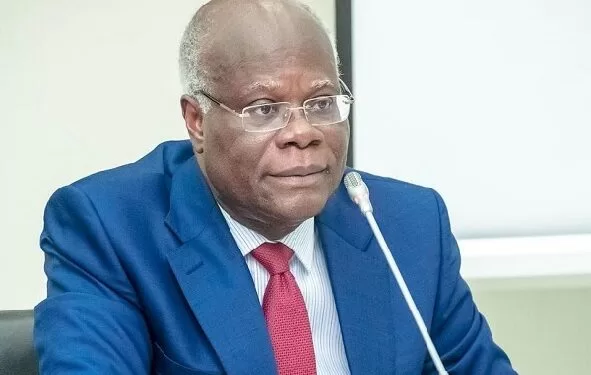Vice President Mahamudu Bawumia says the government will order 100 electric buses for the Metro Mass Transit Limited by the end of this year.
This is intended to introduce e-vehicles to the public transport system in Ghana to be integrated with the Tap&Go system.
Vice President Bawumia announced this in Accra on Monday when he launched the ‘Tap & Go’ system and ticketing solution for Metro Mass Transit Ltd.
The ‘Tap & Go’ initiative would eliminate corruption and revenue losses in public transport operations in the country, he said, adding that it had introduced a digital card system like the Oyster Card System used in the United Kingdom.
It involves the use of a digital card with preloaded cash, allowing passengers to pay for fares by simply tapping the card on a fixed machine installed on the bus.
Additionally, a mobile app would offer a virtual card option for payment via mobile phones.
To enhance safety and monitoring, security cameras would be installed in the electric buses at the control room to monitor activities onboard.
The Tap and Go initiative, Dr Bawumia indicated, would include a Manifest System where passengers could register for the card using their GhanaCard and phone number, ensuring transparency and safety.
Other features include the ability to purchase tickets from home before boarding the bus and top-up options using mobile money accounts.
The Tap and Go initiative is expected to revolutionise the public transport system and elevate the quality of services offered to the public.
It formed part of the Government’s ambition of ensuring a cashless society and modernising the public transport services to improve transparency and its service delivery to passengers in general, Dr Bawumia said.
Mr Kwaku Ofori Asiama, the Minister of Transport, said the initiative was a game-changer in the public transport sector, which would ensure affordable and reliable access to transport services by the commuting public.
“This is a new phase of the digital revolution and would redefine the future of the public transport system in Ghana,” he said.
Mr Albert Adu Boahen, the Managing Director of MMT, in his welcome remarks, said the system would bring efficiency to the company’s operations and minimise revenue losses.
The Kaneshie Terminal of Metro Mass Transit Ltd was the first to introduce it and by 31st May, this year, all the 25 branches of the company would be networked to the Tap&Go system to optimise operations, he said.
The system was designed by a Ghanaian IT solution developer, in collaboration with the Ministry of Transport and the Office of the Vice President.
The public can download and install the Tap&Go application on AppStore or playStore or by dialling *713*091#.
Source: GNA

 Sports4 days ago
Sports4 days ago
 Business4 days ago
Business4 days ago
 Business4 days ago
Business4 days ago
 Health4 days ago
Health4 days ago
 Business4 days ago
Business4 days ago
 Politics4 days ago
Politics4 days ago
 Entertainment4 days ago
Entertainment4 days ago
 Sports4 days ago
Sports4 days ago













